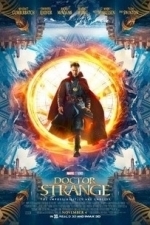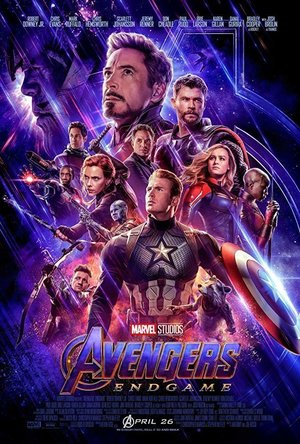
Azan Time Pro
Productivity and Utilities
App
*****Special Discount for limited time from 4.99$ to 1.99$ Get it now before the price growing...

BÁO ONLINE FULL
News and Entertainment
App
-- Phiên bản Full không kèm quảng cáo -- Ứng dụng giúp các bạn đọc tất cả...

Lose Weight Hypnosis
Health & Fitness and Lifestyle
App
◉ Learn to enjoy healthy food and exercise after listening daily for just 1–3 weeks ◉ Change...

BÁO ONLINE - Báo Mới, Tin Mới
News and Entertainment
App
Ứng dụng giúp các bạn đọc tất cả các báo điện tử hàng đầu Việt Nam dễ...

Báo Mới Online - Đọc Báo, Tin Tức, Tin Mới 24h
News and Utilities
App
Ứng dụng giúp các bạn đọc tất cả các báo điện tử hàng đầu Việt Nam dễ...

Recipe Book : Christmas Dinner Recipes Cookbook
Food & Drink and Book
App
My recipe box is the only amazing recipes app where you will learn to make all kinds of delicious...
Bob Mann (459 KP) rated Mamma Mia: Here We Go Again! (2018) in Movies
Sep 29, 2021
Which brings us spoiler-free to the start of “Mamma Mia! Here We Go Again”, typically shortened by everyone to “Mamma Mia 2”, the sequel to the enormously successful cheese-fest (and Bros-fest) that was the first film, now – unbelievably – 10 years old.
Sophie (Amanda Seyfried) is trying to open the Bella Donna hotel on that magical Greek island separated from her husband Sky (Dominic Cooper) who is learning the tips of the hotel trade in New York. As preparations for the opening party progress we flash back to the back-story of Donna (as a post-graduate played by Lily James) as she meets Harry (Hugh Skinner, “The Windsors”, “W1A”), Bill (Josh Dylan, “Allied”) and Sam (Jeremy Irvine, “War Horse”) en route to Greece.
If you remember the first film and thought Donna (Meryl Streep) was a bit of a… erm… ‘loose woman’, then this plot point could have been amplified by seeing the “dot, dot, dot” acts in the flesh, as it were. Fortunately, in steps Lily James as the young Donna who is so mesmerisingly gorgeous and vivacious that you can forgive her just about anything. “Beguiling” was the description my better half came up with, and I couldn’t describe her better. Supporting her effectively are Alexa Davies (as the young version of Julie Walters‘ character) and Jessica Keenan Wynn (as the young version of Christine Baranski‘s character). The trio’s exuberant performance of “When I Kissed the Teacher” sets the tone well for the grin-fest to follow. (By the way, if you are a Mary Poppins fan then a bit of trivia is that Wynn is the great-granddaughter of Ed Wynn, the character who “Loved to Laugh” on the ceiling!).
In these days of drought, Trump vs the world, Brexit and universal bruhaha, this is a much-needed joyful film, and far better I would say than the original. A good story, well executed and stuffed with excellent tunes. True, apart from a number of key repeats, we are more in the territory – in CD terms – of “More Abba Gold” than “Abba Gold”, but Bjorn and Benny’s B-sides are still better than many other’s A-sides. What’s really nice is that the songs are well chosen to mesh better into the story and the lead singing of Seyfried and James is uniformly excellent. Pierce Brosnan gets to sing (no, no, come back!) but it is cleverly low-key and genuinely touching. And as for Celia Imrie, you’re a legend and we forgive you!
It’s also far better at finding both humour and pathos than the original, with the splendid Hugh Skinner exhibiting perfect comic timing and comedian Omid Djalili being very funny (stay to the end of the end-credits for a very funny monkey). National treasure Julie Walters also adds excellent comic content, particularly in a number of dance scenes.
And as for the pathos, if the duet at the finale doesn’t move you to tears you are either made of rock or are immune to being shamelessly manipulated! It’s a well-scripted convergence of grief and joy (I feel Richard Curtis‘s hand in the story here) around one of Abba’s most beautifully tear-jerking songs. I will admit to you – don’t tell anyone else – that I was left in a complete mess… another reason to sit through the end titles!
At the elderly end of the cast list Andy Garcia is magnificent as the South American hotel manager Mr Cienfuegos (you’ll NEVER guess what his first name is!) and Cher (“Moonstruck”) literally rocks up trying hard to steal the show as Sophie’s Vegas superstar grandmother.
Directed and scripted by “Best Exotic Marigold Hotel” director Ol Parker (the lucky guy who is married to Thandie Newton!) it drips with cheese again, but who cares when it is so stylishly done. Should you see this? The test is simple: if you hated “Mamma Mia” then you will hate this one; if you loved “Mamma Mia” you will simply adore this one.
Bob Mann (459 KP) rated Doctor Strange (2016) in Movies
Sep 29, 2021
After an horrific car crash (topically addressing the dangers of mobile use while driving) Strange loses the ability to practice his craft, and descends into a spiral of self-pity and despair. Finding a similar soul, Jonathan Pangborn (Benjamin Bratt, “24: Live Another Day”) who’s undergone a miracle cure, Strange travels to Katmandu in search of similar salvation where he is trained in spiritual control by “The Ancient One” (Tilda Swinton, “Hail Caesar”, “The Grand Budapest Hotel”) ably supported by her assistant Mordo (Chiwetel Ejiofor, “12 Years a Slave”) and librarian Wong (Benedict Wong, “The Martian”). So far so “Batman Begins”.
As always in these films though there is also a villain, in this case a rogue former pupil turned to the dark side (have we not been here before Anakin?) called Kaecilius (Mads Mikkelssen, “Quantum of Solace”). The world risks total destruction from spiritual attack (“…the Avengers handle the physical threats…” – LOL) and the team stand together to battle Kaecilius’s attempts to open a portal (“Zuuuul”) and ‘let the right one in’.
Followers of this blog will generally be aware that I am not a great fan of the Marvel and DC universes in general. However, there is a large variation in the style of films dished out by the studios ranging from the pompously full-of-themselves films at the “Batman vs Superman” (bottom) end to the more light-hearted (bordering on “Kick-Ass-style”) films at the “Ant Man” (top) end. Along this continuum I would judge “Doctor Strange” to be about a 7: so it is a lot more fun than I expected it to be.
The film is largely carried by Cumberbatch, effecting a vaguely annoying American accent but generally adding acting credence to some pretty ludicrous material. In particular he milks all the comic lines to maximum effect, leading to some genuinely funny moments: yes, the comedy gold extends past Ejiofor’s (very funny) wi-fi password line in the trailer.
Cumberbatch also has the range to convincingly play the fall of the egocentric Strange: his extreme unpleasantness towards his beleaguered on/off girlfriend (the ever-reliable Rachel McAdams (“Sherlock Holmes”)) drew audible gasps of shock from a few of the ‘Cumberbitches’ in my screening. (As I’m writing this on November 9th, the day of Trumpagedden, we might have already found a candidate able to play the new President elect!)
In fact, the whole of the first half of the film is a delight: Strange’s decline; effective Nepalese locations; a highly entertaining “training” sequence; and Cumberbatch and Swinton sparking off each other beautifully.
Where the film pitches downhill is where it gets too “BIG”: both in a hugely overblown New York morphing sequence (the – remember – human heroes suffer skyscraper-level falls without injury) and where (traditionally) a cosmic being gets involved and our puny heroes have to defend earth against it. Once again we have a “big CGI thing” centre screen with the logic behind the (long-term) defeating of the “big CGI thing” little better than that behind the defeat of the “big CGI thing” in “Batman vs Superman” (but without Gal Gadot’s legs unfortunately to distract the male audience).
Music is by Michael Giacchino, and his suitably bombastic Strange theme is given a very nice reworking over the end titles. By the way, for those who are interested in “Monkeys” (see glossary) there is a scene a few minutes into the credits featuring Strange and one of the Avengers (fairly pointless) and a second right at the end of the credits featuring Pangborn and Mordo setting up (not very convincingly I must say) the potential villain for Strange 2.
Not Shakespeare, but still an enjoyable and fun night out at the movies and far better than I was expecting.
Emma @ The Movies (1786 KP) rated Avengers: Endgame (2019) in Movies
Jun 22, 2019 (Updated Sep 25, 2019)
We were left forlorn in the wilds of Wakanda after Thanos' snap in Infinity War. 50% of every living creatures on the planet, on every planet, wiped out of existence. Thanos has set off in his retirement while our heroes are reassembling. What's left of the team is trying to get back to a normal life, saving the world, saving each other. Some are moving on, some are stuck on the past, all are lost.
I wrote more notes for this than I've written for any other movie. It was so much of a problem that I condensed the original and then recondensed them into collected topics. I'm vaguely going to go in chronological order, let's do it!
We open with Hawkeye. The scene was simple and effective to help line up the change in him, but it wasn't the tone I expected for the beginning of the film. You have to start it somehow, and I don't know how I thought they would but tonally it didn't say "Marvel" to me. In the trailers we see his darker side coming through, after seeing the film I can't help but wonder if they needed to do this to him. It felt a little like they were just doing it to use for one scene. Clint is a stand-up guy, he would have been there for them regardless in this situation.
As we recap on what's happening in the wake of the snap we find Nebula and Tony attempting to return from Titan on the Guardian's ship. For me, Nebula was the best bit of the whole film. The scenes with Tony are wonderful and touching, she's able to make a connection that she's never really had before and her transformation through the film is a delight.
Something at this point that I feel I should bring up is the partnership that we witness. Tony and Nebula, Nebula and War Machine, Rocket and Thor. We're given lots of different Marvel Mash-ups with great results. Nebula, in particular, shone through in these. Watch out for her with Rhodey.
Steve, Cap, is very much in control throughout this movie, in leadership as well as of his emotions. He still has his positive outlook on life but even when it wanes he's determined. Visually they've left you no room to wonder on whether he is the first Avenger, he leads into a room and he gets a lot of shots that frame him perfectly. But he has changed... on more than one occasion I found myself going "Language, Steve!" I was unsure about his support group in the trailer and after the full scene it felt like it was just there to set up occurrences towards the end of the film. You'd be forgiven for thinking this was actually a Captain America film, it felt much more like one than Civil War did.
Before coming to Endgame one of the things I had been thinking about was how Scott was going to return from the quantum realm. What happens kind of feels like they had no idea how they were going to do it, and it was frustrating and leaves you with questions about what happened in the five years since the snap. There's also a potential horror movie spin-off teased in Scott's walk through San Francisco, he encounters a kid on a bike... classic horror movie moment in that scene.
Nat gets to flex her leadership muscles in the post-snap world trying to keep a new band of Avengers together. Still based in the Avengers complex she's coordinating with members around the world and out in space. We finally see some genuine raw emotion from her as they search for Hawkeye as he's off on his... well what is it? Redirected revenge? She's always had a trusted position with Fury and it seems like his dusting has pushed her to step up.
Carol is back after her recent debut... I still don't think we can call her Captain Marvel when no one else does. I still don't like her, I can't help it. She's cocky and she doesn't seem to have any desire to actually work with the team. If there's anything that I got from this film it's that Black Widow should have had her own film already rather than introducing Carol at the last minute. She's not really a massive feature of the film and her inclusion feels almost like they needed to a solution to a problem and she was the quickest way to fix it.
Now we get to the point where I had some major upset. In my opinion, Marvel have done wrong by Bruce/Hulk and Thor. I saw a spoiler on Twitter for Bruce that I hoped was fan-inspired, but when we get to him in the film I sat in annoyed silence as those around me murmured with excitement. As far as Thor goes, I can see why they made the choices they did with him but it felt like they just turned him into a joke, and that didn't sit right with me at all. Just one small step back from what they did and they would have nailed it, but it felt like they just went for the cheap laugh at his expense.
So it's time to talk about time travel, I think we all knew that we could expect to see it in some way or another in Endgame. Tony and Bruce obvious have a big hand in this one, and it was nice to see them acknowledging the "normal" person discussion of time travel with film references. Outside of that though they threw a lot of complicated script at it, it felt like a very random step away from how they usually deal with technical things in the universe.
From the one hour point of the movie(ish) everything starts to pick up, up until then I wasn't loving the film, and that was upsetting to me. What follows from the quantum suit walk is a lot of fun. There are a lot of nostalgic moments that brought humour and a fun layer to the older films and we get what is probably the most satisfying moment of the entire MCU.
Visually this is one of the better films in the sequence. Shots weren't overly cluttered and so busy that you couldn't see what was happening, and there were a lot more poignant visuals. There are however a few that make me think they had to be reshot because you get very specific angles that give you the back of someone's head and the audio sounds slightly off to the rest of the scene.
Two things left to specifically mention...
The women of Marvel. For so many films we had very few female heroes, certainly none that got their fair share of coverage until The Wasp, Captain Marvel and an excellent female ensemble in Black Panther. I'm all for more female characters but I think Endgame went too far. There is one scene near the end that felt more like they were worried they hadn't had enough women on screen and they really packed them in, it felt awkward rather than awesome.
Stan Lee's cameo. It wasn't the usual fun we're used to. Fleeting and forgettable. Stan deserved better, this just didn't feel right. I even briefly wondered if it was actually him.
For me, Endgame wasn't the finale that we deserved. It wasn't better than Infinity War but I don't think that it could have been because of how much it had to bring to the table. I went and saw it twice because I like to see the 3D and 2D when they come out, it was actually one of the better 3D films I've seen on a regular screen.
I probably would have given this 3 stars, while I had fun watching it I came out both times feeling kind of "meh" about it. Nebula, America's ass and the epic moment in the finale, as well as a few other amusing moments, bumped it up slightly. I sadly found that first hour rather challenging and couldn't get on board with some of the character choices that were made.
What you should do
Let's face it, you're going to watch it if you've invested time in watching all the Marvel movies and I'm sure you'll enjoy it. I'm aware I'm in a minority with my feelings about this, but not everyone can feel the same way about everything. What a world it would be if we could.
Movie thing you wish you could take home
I'd still like an infinity stone... but I don't know which one.



